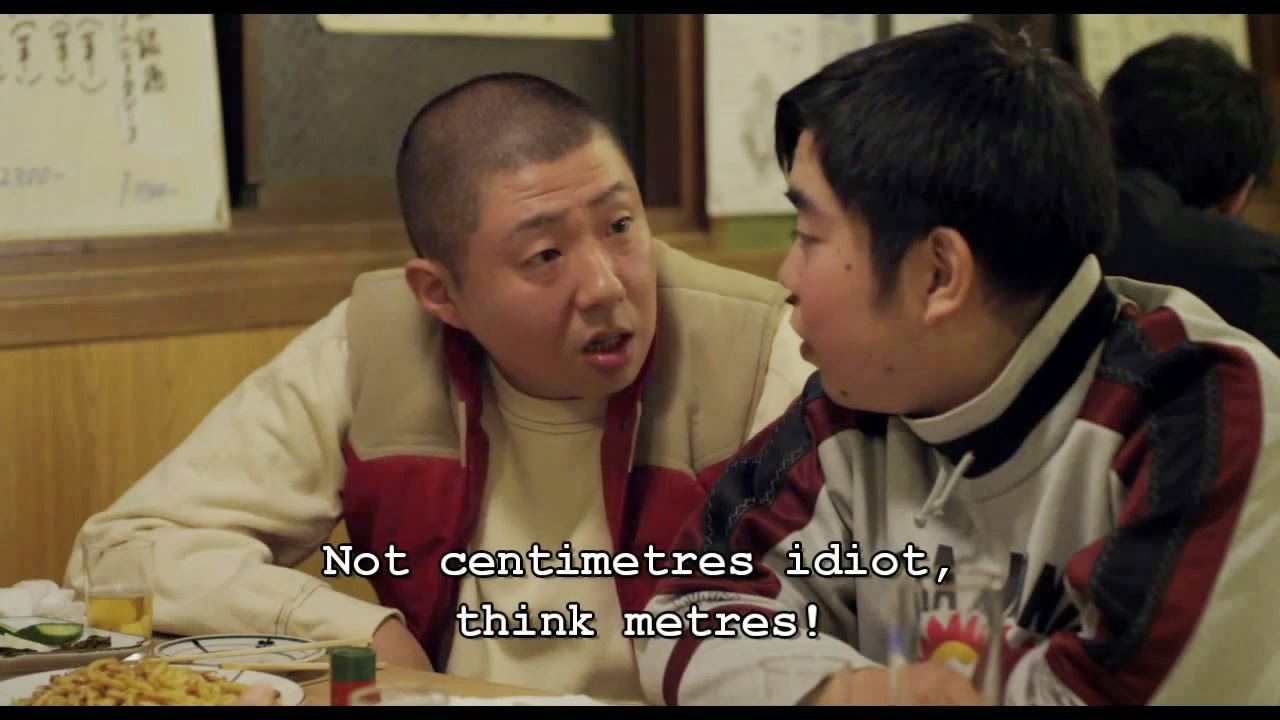Tetsuya Nakashima is a director that pops up every couple of years with
a film that can only be described as 'ruddy good.' I first saw 'Kamikaze Girls'
and 'Memories of Matsuko' within about an hour of each other a few years back
and enjoyed both. I then anticipated and enjoyed (as much as you can) 'Confessions'
which soon followed. So after a few years off, Nakashima returns with 'The
World of Kanako', and was I excited?!
Akikazu Fujishima is an absolute bastard. A real piece of the proverbial.
Losing his job as a detective due to his
mental health, he soon gains alcoholism and a job as a security guard, but
loses his wife and daughter. Living in his own filth, he suddenly receives a
call from his estranged wife asking if he's seen their daughter. With a number
of recent murders connected to his missing daughter, Akikazu soon becomes
caught up in police investigations, frequent battles with his wife and gang
violence. In true Hollywood-style, he decides to take the case of his missing
daughter on himself, discovering the world of his daughter that he never knew,
and maybe wishes he never did.
Starring Koji 'always in the big film' Yakusho as Mr Bastard, the film
starts with Tarantino-esque retro titles, loud, brash and in your face. This
sets the standard for two hours of intense, graphic and probably over-the-top
cinema. 'The World of Kanako' is a good film, but you come away thinking that
it could have been a bit simpler.
There are definite elements of the three previously mentioned Nakashima
films all present here: The in-your-face, cartoonish styling of 'Kamikaze Girls';
the epic life story, enigmas and musical montages of 'Memories of Matsuko'; and
the, at times, overly intense psychology of 'Confessions'. All are employed
effectively here again, creating a extreme, dark and out-of-this-world
experience for both the characters and viewers alike.
But, a little like Tarantino, things get a little indulgent here. Most
obviously is the violence: blood splatters across pretty much every scene with
teenage acne-like glee, with the make-up department working overtime in getting
everyone's face suitably disfigured. Everyone hits everyone hard, with sound effects
to match, and then they walk into the next scene for it all to happen again. While
I don't mind a bit of violence on screen , when it's relentless it can become
both a little boring and lacking impact.
The switching between past and present also gets a little overdone,
though generally throughout is the film's strength in creating both mystery and
builds as the film continues. Though by the end, the switching becomes too
frequent, blurring the lines between the past and the present, with endless
editing.
The films starts well, but starts to fall off as the end grows nearer.
The violence becomes too much, cartoon-like in a film that creates an intense
atmosphere. More and more characters come in towards the end, that maybe didn't
need introducing. But disappointingly the intensity that is built throughout
the film gets lost in this violence, seeing the viewer switch off and despite
trying lacks the well rounded conclusion of 'Memories of Matsuko' and
'Confessions'. But Nakashima is a director that can certainly create an
experience through cinema.
This year's BFI London Film Festival, the 58th incarnation, was
record-breaking in its attendances. Six films seen from five countries, one of
which I can describe as a 'ruddy belter.' The rest all promised, delivered to
some extents, maybe fell short in others. With the likes of 'Tokyo Tribe', 'Free
Fall' and 'The World of Kanako', films now are definitely trying to push boundaries
of intensity, experimentation and taste, but as ever, it can be the simpler
films that see the most creativity and often result in the best cinematic
experience.















